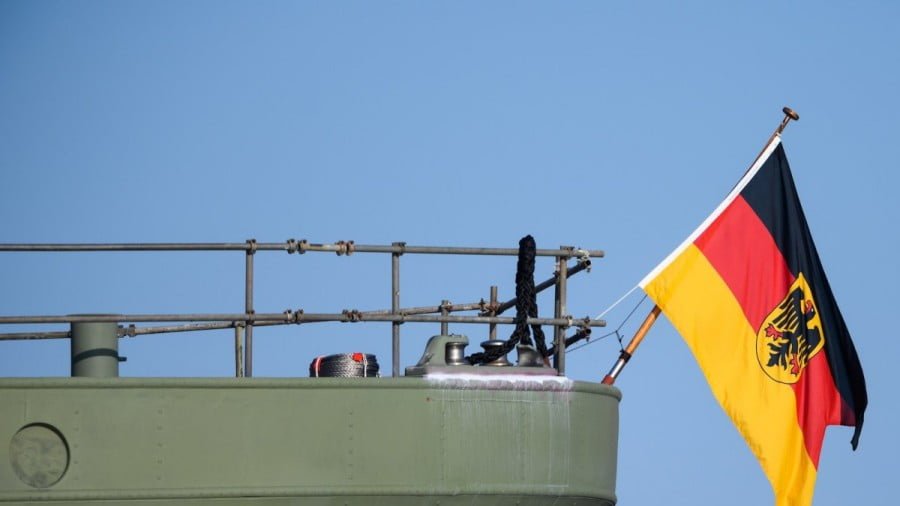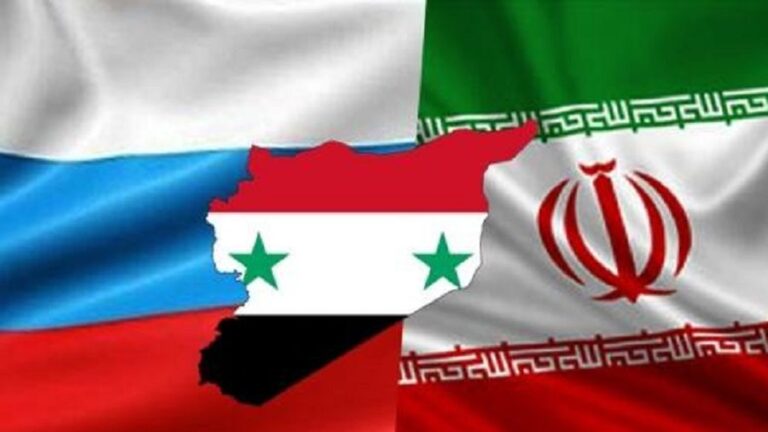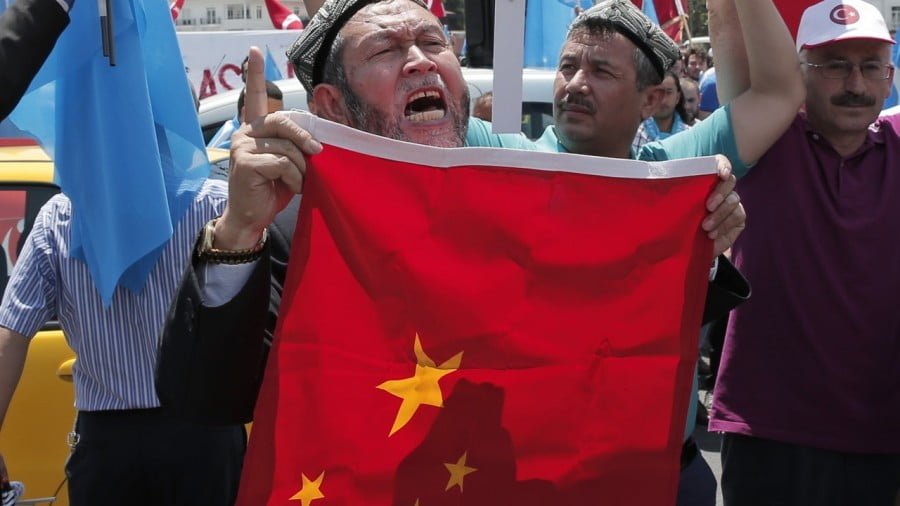Germany Wades Into the Indo-Pacific Fray
In a move that promises to rile China, Germany has officially joined the “Indo-Pacific” geopolitical club as outlined in a new 40-page policy guideline. The document makes Germany the second European nation, along with France, to adopt a formal strategy for the region.
Though falling short of taking sides in Donald Trump’s new Cold War against China, Germany is now clearly asserting its interests in East Asia with greater openness and vigor, judging by the German language document.
The guideline, released on September 2, says Germany seeks to “promote a European Indo-Pacific strategy” where it makes “an active contribution to shaping the international order in the Indo-Pacific.”
In a thinly-veiled criticism of China’s coercive diplomacy in the region, Germany’s policy emphasizes the importance of “avoid[ing] unilateral dependencies by diversifying partnerships.”
The European powerhouse also underscored how it “wants to work more intensively with the countries of the region, be it to strengthen the rule of law and human rights” and that the “security-policy sector plays a special role in this context.”
Under Trump, Washington has adopted an increasingly aggressive “Free and Open Indo-Pacific” strategy (FOIP), a combination of aggressive diplomacy and expanded military deployments to check China’s growing ambitions in adjacent waters and beyond.
Japan, Australia and India have mainly welcomed America’s tougher new approach vis-à-vis China, witnessed in growing strategic and military cooperation through the Quadrilateral (Quad) loose alliance.
Britain and France have also reiterated their commitment to preserve and promote freedom of navigation and overflight – along with a broad liberal order – across the Indian and Pacific Oceans, where both have major territorial and strategic interests.
In recent years, both European powers have conducted major naval drills, including with Quad partners, in the Pacific and Indian Oceans. Those have included maneuvers in the hotly contested South China Sea.
For its part, Germany is now pushing for a unified stance within the European Union, emphasizing the need for cooperation, as well as strengthening regional multilateralism through the 10-member Association of Southeast Asian Nations (ASEAN).
China apparently senses the shifting currents.
“Changes are emerging on the horizon and China-Europe relations may never be the same,” wrote a Chinese expert for the hawkish state-backed Global Times newspaper. He emphasized in the article how Germany “may hope to see some of its investments and businesses moved from China to India, or some Southeast Asian country.”
Germany’s announcement came shortly after Chinese Foreign Minister Wang Yi’s tour of major European capitals, where China’s top diplomat faced tough questioning from his various hosts.
While Italian and French officials raised concerns over China’s human rights record in Hong Kong and Xinjiang, German Foreign Minister Heiko Maas raised his Chinese counterpart’s threatening statements against European officials in recent months.
Tensions have risen in light of Czech Senate speaker Milos Vystrcil’s high-profile visit to Taiwan in a bid to strengthen cooperation and promote business amid the pandemic.
In response, China’s top diplomat warned the European delegation would “pay a heavy price” for its “provocation” and violation of the “One China” policy since Taiwan is an “inseparable part of China.” China views Taiwan as a renegade province that must be “reunified” with the mainland.
Vystrcil’s was the second high-level visit by a Western nation to the self-governing island in recent weeks, following US Health Secretary Alex Azar’s visit last month.
Though Europe’s leading economic power, Germany has punched decidedly below its geostrategic weight in recent decades.
From the world’s third-largest military in the 1980s, with hundreds of thousands of troops ready for full mobilization, Germany saw a dramatic scaling down of its military capabilities following the end of the Cold War and unification with East Germany.
The upshot has been Germany’s relatively limited capability to project power overseas, despite its central role within the EU and massive economic resources.
In fact, the issue has been a major bone of contention with successive US administrations, which have prodded Berlin to build up its capacity and more proactively contribute to the North Atlantic Treaty Organization’s (NATO) international operations.
“Germany doesn’t pull its weight…[even] in security policy in the broader sense of the world,” argued German expert and historian Adam Tooze. When Germany expressed growing interest in security affairs, it usually centered on the threat posed by Russia, not China.
As recently as 2018, a senior member of the German Bundestag’s Committee on Foreign Affairs told this author, “our primary geopolitical concern remains to be Moscow and its growing assertiveness in Eastern Europe.”
Major economic interests are also in play since Germany is a major exporter to China, with bilateral trade hitting over 200 billion euros in 2018, according to Germany’s Federal Foreign Office. Critics have thus argued that Berlin has taken an overly cautious stance to preserve its lucrative ties with Beijing.
Nonetheless, Germany has taken an increasingly principled stance on sensitive geopolitical issues. In 2015, German Chancellor Angela Merkel told her Chinese hosts that “territorial dispute in the South China Sea” constitute a “serious conflict” that should be handled under international law.
“[W]e wish that the sea trade routes stay free and safe, because they are important for all,” said the German leader. At the time, Merkel also emphasized the importance of “multinational courts” and international arbitration as “an option for a solution” of maritime disputes.
This was seen as implicit support for the Philippines’ arbitral complaint filed against China at The Hague, which Manila eventually won in July 2016.
On the occasion, Merkel gave an early 18th century map of China that graphically questioned Beijing’s “historic” claims to both Taiwan and the bulk of South China Sea.
The perceptible shift in Germany’s position is in line with Berlin’s efforts to become Gestaltungsmächte (shaping powers), which facilitates the creation of “Ordnung” (orderliness) in key regions of the world which are of primary strategic importance to Europe.
As a major exporting nation, a significant portion of Germany’s trade passes through contested waters across the Indo-Pacific. In 2016, Germany exported up to $117 billion in merchandise goods through the contested South China Sea.
Amid rising tensions in the region, Germany has reportedly contemplated sending warships to support US Freedom of Navigation Operations. By adopting a new strategic doctrine in the Indo-Pacific, Germany may soon become a more proactive strategic player in East Asia beyond its historical role.
“Our prosperity and our geopolitical influence in the coming decades will depend on how we work together with the countries of the Indo-Pacific region,” said Foreign Minister Maas, underscoring Germany’s rising interest in playing a leading role beyond Europe’s immediate neighborhood.
“That, more than anywhere else, is where the shape of the international rules-based order of tomorrow will be decided. We want to help shape that order so that it is based on rules and international cooperation, not on the law of the strong,” Maas added.







